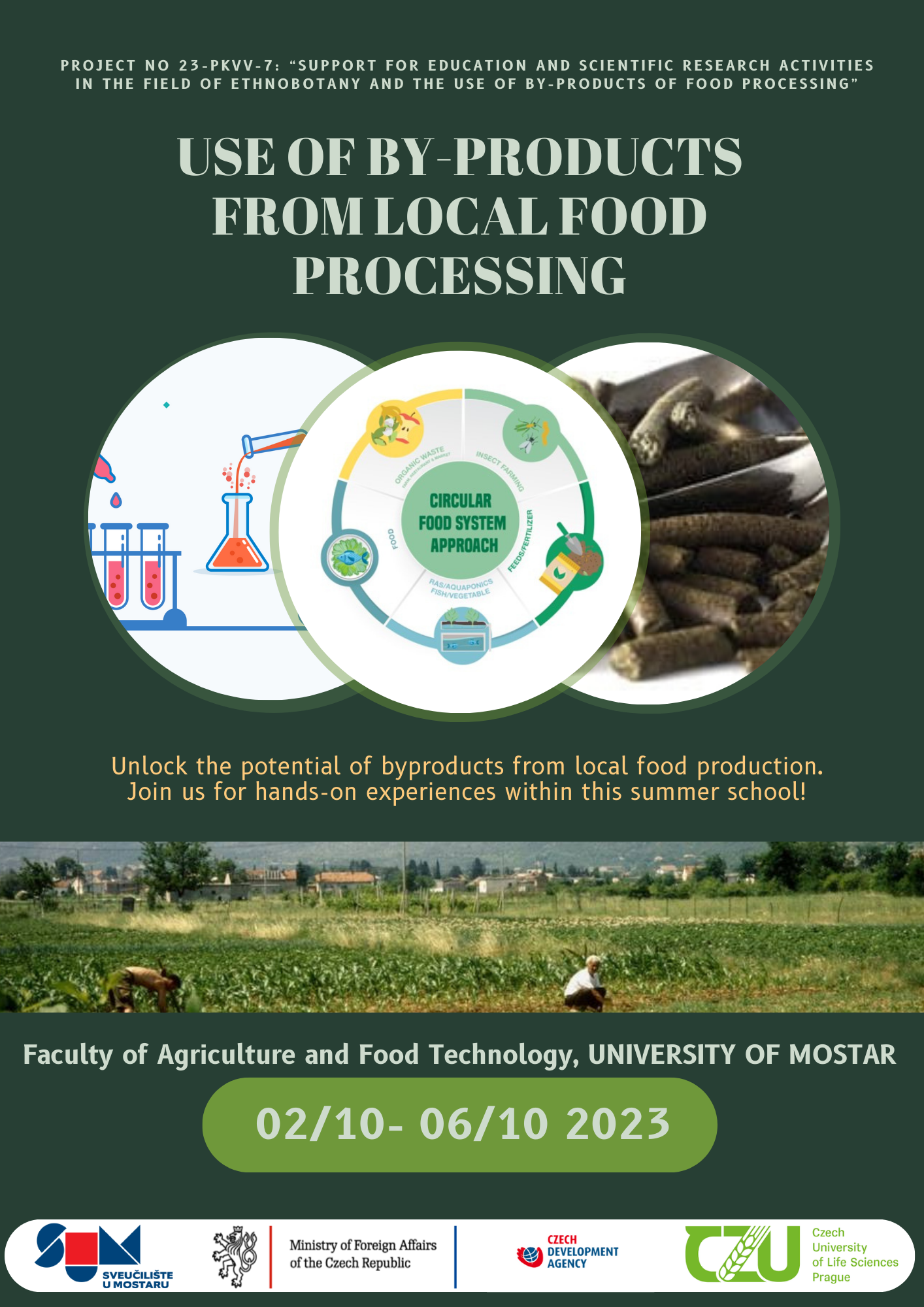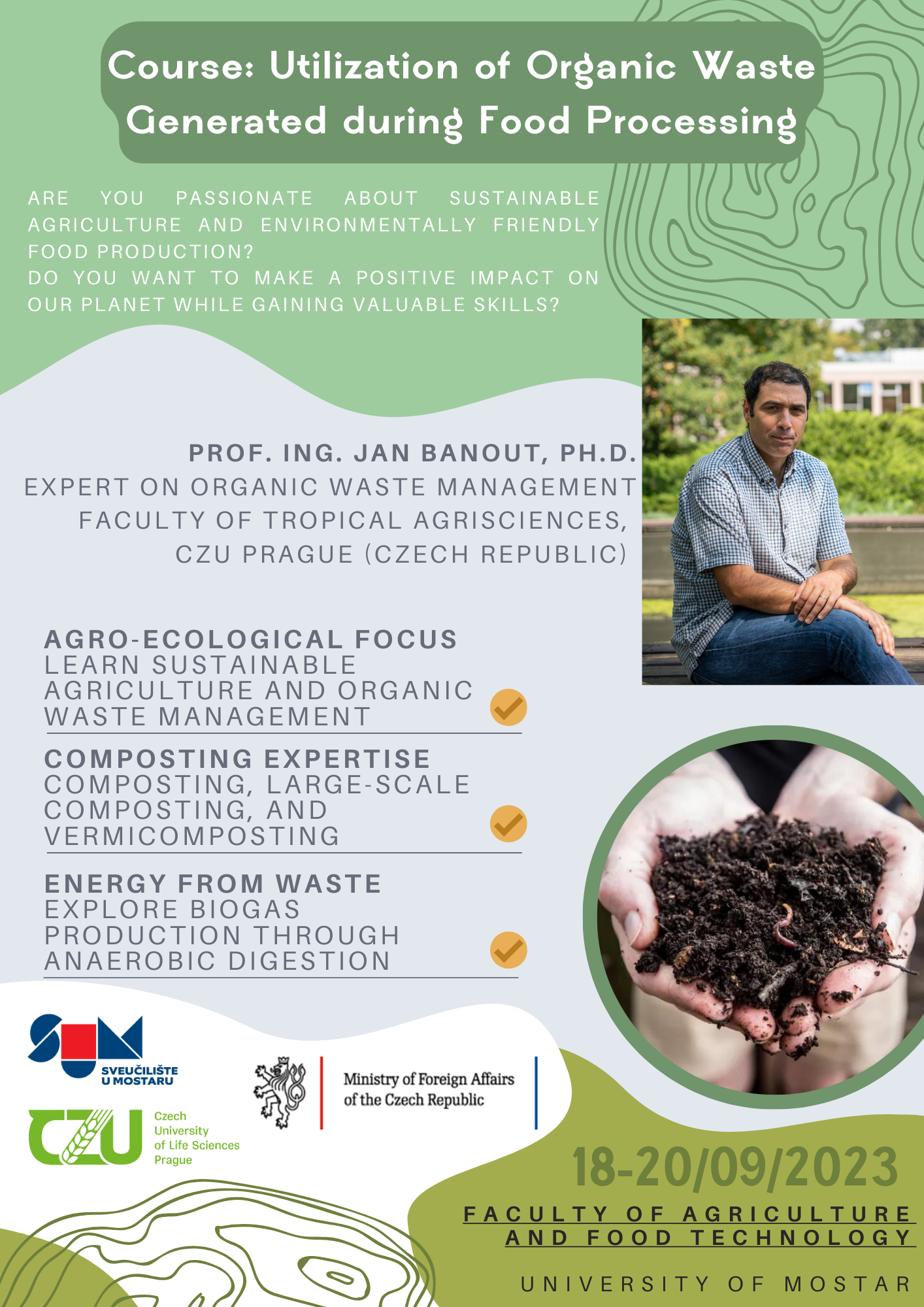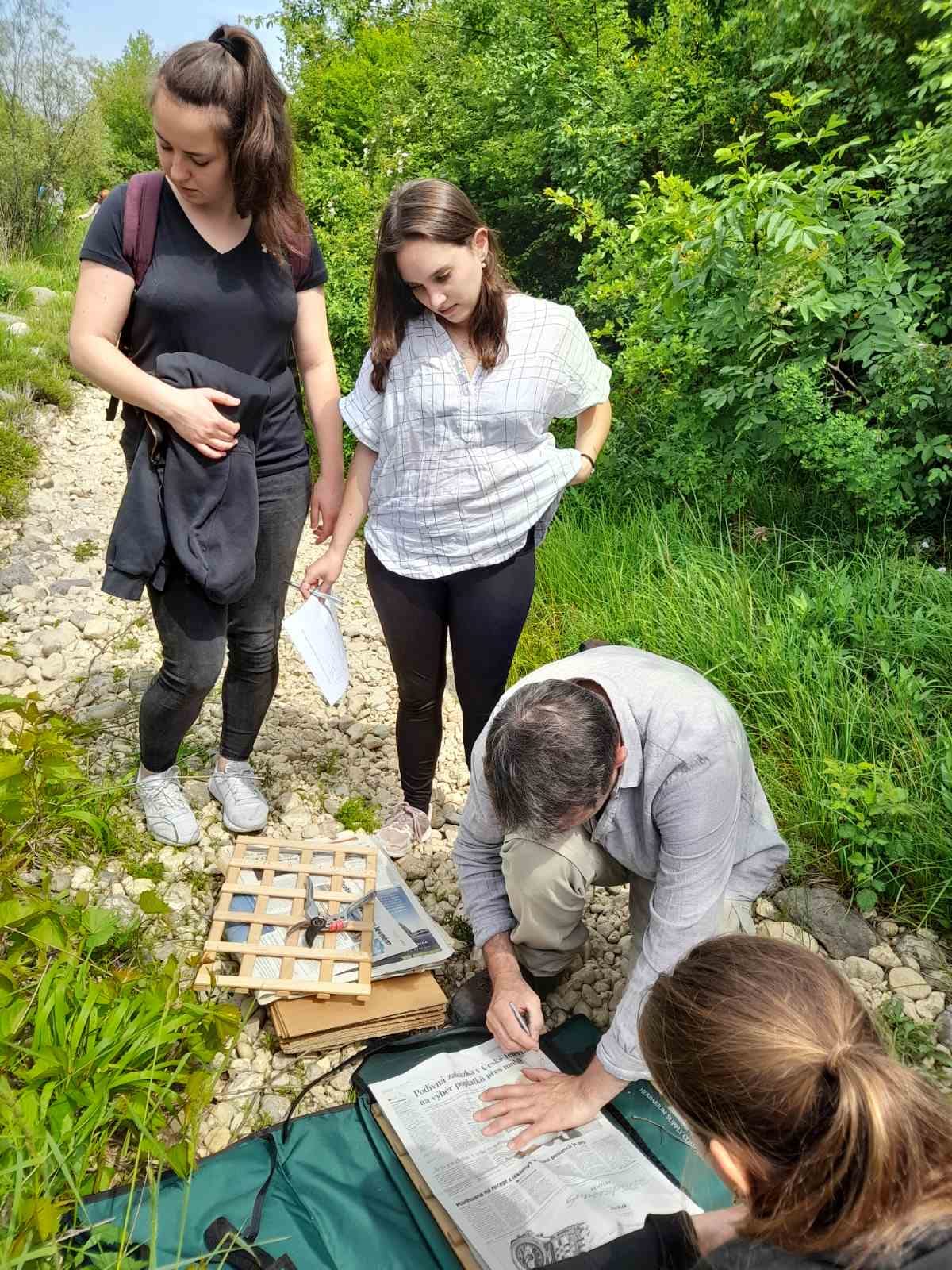Dates: 2nd- 6th October 2023
Lecturers: Iva Kučerová, Adéla Fraňková

The course will focus on the possibilities of processing and utilisation of by-products arising from the processing of fruit, vegetables and wild or wild plant species. In BIH, locally available and popular presses of grapes, chokeberries, olives and other crops are available, as well as the collection and processing of wild species such as dogwood, rosehips and wild pomegranates. Based on the experience of the projects already carried out, it appears that producers do not process the by-products of production. However, these can become an important raw material for products that are highly valued on the market, such as oils pressed from pomegranate seeds, rosehips, grapes, etc. The pomace can be further processed into animal feed, added to bakery products (to improve nutritional properties), used to make fruit snacks, extract valuable bioactive substances, etc. The summer school will focus mainly on techniques and technologies for processing and producing by-products.
Dates: Monday 18th September- Wednesday 20th September 2023
Lecturer: prof. Ing. Jan Banout, Ph.D.
Training course will be implemented focusing on the methods
of processing organic waste in agriculture and organic residues from food
production. The processing of organic wastes, their subsequent use to enrich
the soil and maintain the nutrient cycle in the soil is one of the key
conditions for sustainable management within the framework of the so-called Agro-Ecological
Approach. In the course, participants will gain knowledge of the biological
processes involved in the decomposition of organic matter. The course will
mainly focus on composting technologies as the most efficient method of
nutrient recycling. This includes mainly methods of garden composting and
therefore small-scale composting, as well as large-scale composting in
landfills or vermicomposting. The course will also discuss technological
parameters in composting (temperature, humidity, pH, C:N ratio, etc.),
procedures for optimizing the raw material storage of compost and its
application to the soil. In addition to the above, the course will also focus
on the possibilities of energy recovery of residual biomass and waste in food
production. This will mainly focus on biogas production technology based on
anaerobic digestion.

- Garant: Banout Jan
- Garant: Kučerová Iva
Dates: 6th- 9th June 2023
Lecturer: Veronika Legarová
Course participants will be introduced to the possibilities
of processing byproducts in milk production. Specifically, the processing of whey,
a byproduct of cheese production, and buttermilk, which is produced during
butter production. Given that the production of both of these commodities
(cheese and butter) has been increasing in recent years, it is necessary to
constantly develop new ways of utilizing their byproducts.

- Garant: Kučerová Iva
- Garant: Legarová Veronika
Dates: 4th- 5th May & 8th- 10th May 2023
Lecturer: Zbyněk Polesný

Basics of ethnobotanical data collection methods
The course participants will practically try out the collection of ethnobotanical data as part of field ethnobotanical screening in a selected locality. It will be teamwork involving an ethnobotanical survey of a local plant market. The course will focus on methods of obtaining data on the use of plants and how important key useful species are, and subsequent methods of processing and interpreting the obtained data. Data collection will be based on a questionnaire survey and subsequent processing of qualitative and quantitative data. The course will not only contribute to the expansion of the professional competencies of the participants but also to the characterization of specific plants and their traditional products with underappreciated research and practical application potential.
Basics of methods of collection and processing of plant material in ethnobotanical research
The course participants will be introduced to standard methods of field ethnobotanical research. The course will focus on standard methods of collecting plant material and passport data and subsequent methods of material processing and its archiving and cataloguing. It will be about sampling procedures in the field, recording data on morphology, ecology and plant communities at a specific collection location with an emphasis on correct research practice in the context of careful sample collection with regard to the population of a specific species. Participants will try to practically collect directly in the field and then process samples and related passport data.
- Garant: Kučerová Iva
- Garant: Polesný Zbyněk

